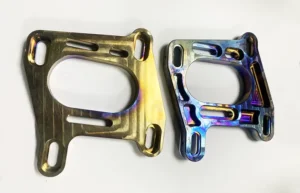
How to become a CNC engineer?
How to Become a CNC Engineer
In the world of manufacturing, Computer Numerical Control (CNC) engineers play a crucial role in ensuring the precision and efficiency of production processes. If you have a passion for technology and a knack for problem-solving, pursuing a career as a CNC engineer could be a rewarding choice.
Education and Training
One of the first steps in becoming a CNC engineer is to obtain the necessary education and training.
While there are no strict educational requirements to enter this field, most employers prefer candidates with a degree in mechanical engineering, manufacturing engineering, or a related field.
Additionally, completing coursework in computer programming, CAD/CAM software, and machine tool operation can provide you with the necessary skills to succeed as a CNC engineer.
Get Hands-On Experience
While formal education is important, gaining hands-on experience is equally valuable.
Look for internships or co-op programs at manufacturing companies or CNC machine shops to get real-world experience in operating CNC machines, programming, and troubleshooting.
This practical experience will not only enhance your skills but also make you more attractive to potential employers.
Master CAD/CAM Software
Computer-Aided Design/Computer-Aided Manufacturing (CAD/CAM) software is an essential tool for CNC engineers.
Mastering these programs will allow you to create precise designs, generate toolpaths, and simulate machining processes.
Familiarize yourself with popular CAD/CAM software such as AutoCAD, SolidWorks, and Mastercam to stay competitive in the field.
Develop Problem-Solving Skills
As a CNC engineer, you will encounter various challenges on a daily basis, from machine malfunctions to programming errors.
Developing strong problem-solving skills is crucial to effectively troubleshoot issues and optimize production processes.
Practice critical thinking and analytical reasoning to become a more efficient CNC engineer.
Stay Updated on Industry Trends
The field of CNC machining is constantly evolving, with new technologies and techniques emerging regularly.
Stay updated on the latest industry trends by attending trade shows, workshops, and continuing education courses.
Networking with other professionals in the field can also provide valuable insights and opportunities for career growth.
Obtain Certification
While not always required, obtaining certification as a CNC engineer can demonstrate your proficiency and commitment to the field.
Organizations such as the National Institute for Metalworking Skills (NIMS) offer certifications in CNC operation, programming, and setup.
Adding these credentials to your resume can set you apart from other job applicants.
Build a Strong Portfolio
Building a strong portfolio of your work is essential for showcasing your skills and experience to potential employers.
Include examples of projects where you have successfully programmed and operated CNC machines, as well as any innovative solutions you have implemented.
A well-curated portfolio can help you stand out in a competitive job market.
Seek Career Advancement Opportunities
Once you have established yourself as a CNC engineer, seek out opportunities for career advancement.
This could include pursuing advanced training in specialized areas such as robotics or additive manufacturing, taking on leadership roles within your organization, or exploring opportunities for entrepreneurship.
Continuously challenging yourself and setting new goals will help you grow professionally as a CNC engineer.
Conclusion
Becoming a CNC engineer requires a combination of education, hands-on experience, technical skills, and a problem-solving mindset.
By following these steps and continuously honing your skills, you can build a successful career in the field of CNC machining.
Stay passionate, stay curious, and never stop learning to excel as a CNC engineer.




1 thought on “How to become a CNC engineer?”
My boss should read this ASAP.